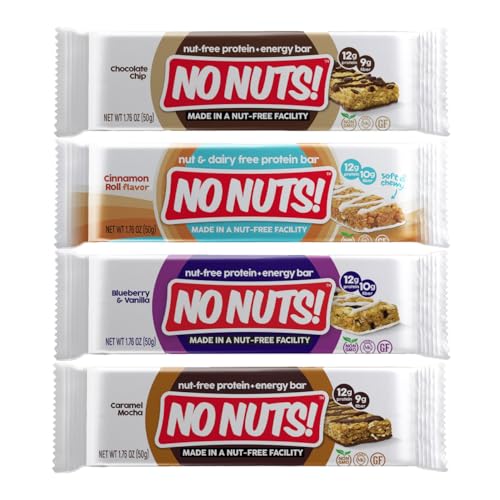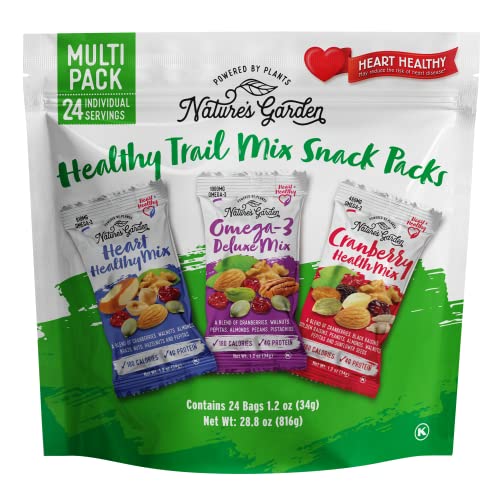I’ve always been on the lookout for quick and healthy snacks, and nut bars often catch my eye. They seem like the perfect blend of convenience and nutrition, packed with protein and healthy fats. But are they really as good for us as they appear?
Understanding Nut Bars
Nut bars often attract health-conscious individuals due to their convenient form and perceived nutritional benefits. It’s essential to delve into the ingredients and nutritional profile of these snacks to understand their health implications.
Ingredients Typically Found in Nut Bars
Nut bars commonly contain:
- Nuts: Almonds, walnuts, cashews, and peanuts provide protein, healthy fats, and essential vitamins.
- Seeds: Chia, flax, and pumpkin seeds add fiber, omega-3 fatty acids, and antioxidants.
- Fruits: Dried fruits such as dates, cranberries, or raisins contribute natural sweetness and additional vitamins.
- Grains: Whole grains, like oats or quinoa, offer fiber and help with satiety.
- Sweeteners: Some bars use honey or maple syrup, while others might contain added sugars—checking ingredient labels helps assess their healthiness.
Nutritional Profile of Nut Bars
Nut bars typically deliver a well-rounded nutritional profile. I often see values that resemble:
| Nutrient | Average per 100g |
|---|---|
| Calories | 400-500 |
| Protein | 10-20g |
| Carbohydrates | 30-45g |
| Dietary Fiber | 5-10g |
| Sugars | 10-20g |
| Fats | 20-30g |
These values may vary based on specific ingredients. Bars with higher protein and healthy fats tend to be more filling, making them an excellent option for a balanced snack. However, some bars with excessive sugars can offset their benefits. Always prioritize those with whole, minimal ingredients for the healthiest choices.
Health Benefits of Nut Bars
Nut bars offer several health benefits, making them a popular choice among health-conscious snackers. Packed with nutrients, they can be a satisfying option to keep energy levels stable throughout the day.
Source of Healthy Fats
Nuts are rich in healthy fats, particularly monounsaturated and polyunsaturated fats. These fats improve heart health and support cholesterol levels. Almonds, walnuts, and cashews, commonly found in nut bars, contribute to balanced diets by providing essential fatty acids. I often choose nut bars containing a variety of nuts for this reason, as they deliver a diverse range of health benefits while keeping snacks filling.
Protein Content and Energy Levels
Nut bars also serve as a great source of protein. A single bar can provide anywhere from 4 to 10 grams of protein, depending on the ingredients. This protein content helps build and repair tissues, aids in muscle health, and keeps hunger at bay. The sustained energy from protein is ideal for busy lifestyles, especially after workouts or mid-afternoon slumps. When selecting nut bars, I prioritize those with higher protein content and minimal additives to maximize their energy-boosting benefits.
Potential Drawbacks of Nut Bars
While nut bars can be a convenient snack, they also come with some potential drawbacks that I’ve noticed. It’s important to keep these in mind when selecting your next go-to snack.
High Sugar Content
Many nut bars pack in a significant amount of sugar. Some brands add sweeteners like honey, maple syrup, or brown sugar to enhance flavor, which can push the sugar content to high levels. For instance, certain bars contain up to 15 grams of sugar per serving. Consuming excessive sugar can lead to energy crashes and long-term health concerns. When choosing a nut bar, I recommend checking the ingredient list for added sugars and opting for those with minimal or natural sweeteners.
Caloric Density Considerations
Nut bars are often calorically dense due to their nut and seed content. For example, a typical nut bar might contain anywhere from 200 to 300 calories. While they’re nutritious, this caloric concentration can lead to overeating if you’re not careful. It’s crucial to consider portion sizes and understand how these calories fit into your daily intake. I find it helpful to balance nut bars with lighter snacks like fruits or vegetables for a well-rounded approach to snacking without overloading on calories.
Comparing Nut Bars to Other Snack Options
I love exploring the world of healthy snacks, especially when it comes to comparing options. Nut bars often capture my attention for their convenience and nutritional content. However, it’s essential to compare them to other popular snack choices to make informed decisions.
Nut Bars vs. Granola Bars
Nut bars and granola bars both offer quick nourishment, but their nutritional profiles can differ significantly. Nut bars usually contain higher amounts of healthy fats due to the nuts used, while granola bars often rely on oats and added sugars for bulk. Many granola bars provide about 5 to 10 grams of protein, while nut bars can deliver between 4 to 10 grams per serving.
When it comes to sugar content, granola bars frequently contain added sweeteners that can push their sugar levels higher. I prefer nut bars made with whole ingredients and minimal sweeteners to keep my sugar intake in check. Choosing nut bars over granola bars ensures that I get more protein and healthy fats, making them a satisfying choice for snacking.
Nut Bars vs. Fresh Fruits and Vegetables
While nut bars offer protein and healthy fats, fresh fruits and vegetables present a different advantage—disease-fighting vitamins and minerals. Fruits like apples and bananas provide natural sugars and fibers, while veggies like carrots and celery deliver hydration and essential nutrients with fewer calories. The protein content in fruits and veggies tends to be lower than in nut bars, but they deliver vital antioxidants that support overall health.
Combining nut bars with fresh produce can create a well-rounded snack. For example, pairing an almond nut bar with an apple not only satisfies hunger but also adds a different texture and nutrient profile. I find that incorporating both nut bars and fresh fruits or veggies into my snack choices provides balance while keeping cravings at bay. This duo inspires me to get creative in the kitchen, mixing flavors and textures for an enjoyable snacking experience.
Conclusion
Nut bars can definitely be a convenient and tasty snack when I’m on the go. They offer a good mix of protein and healthy fats that keep me satisfied. But I’ve learned that not all nut bars are created equal. It’s so important to check the ingredient list and look for options with minimal added sugars.
I love pairing nut bars with fresh fruits or veggies to balance out my snacks. This way I get the benefits of both worlds. Overall if I choose wisely and enjoy them in moderation nut bars can be a great addition to my healthy snacking routine.











